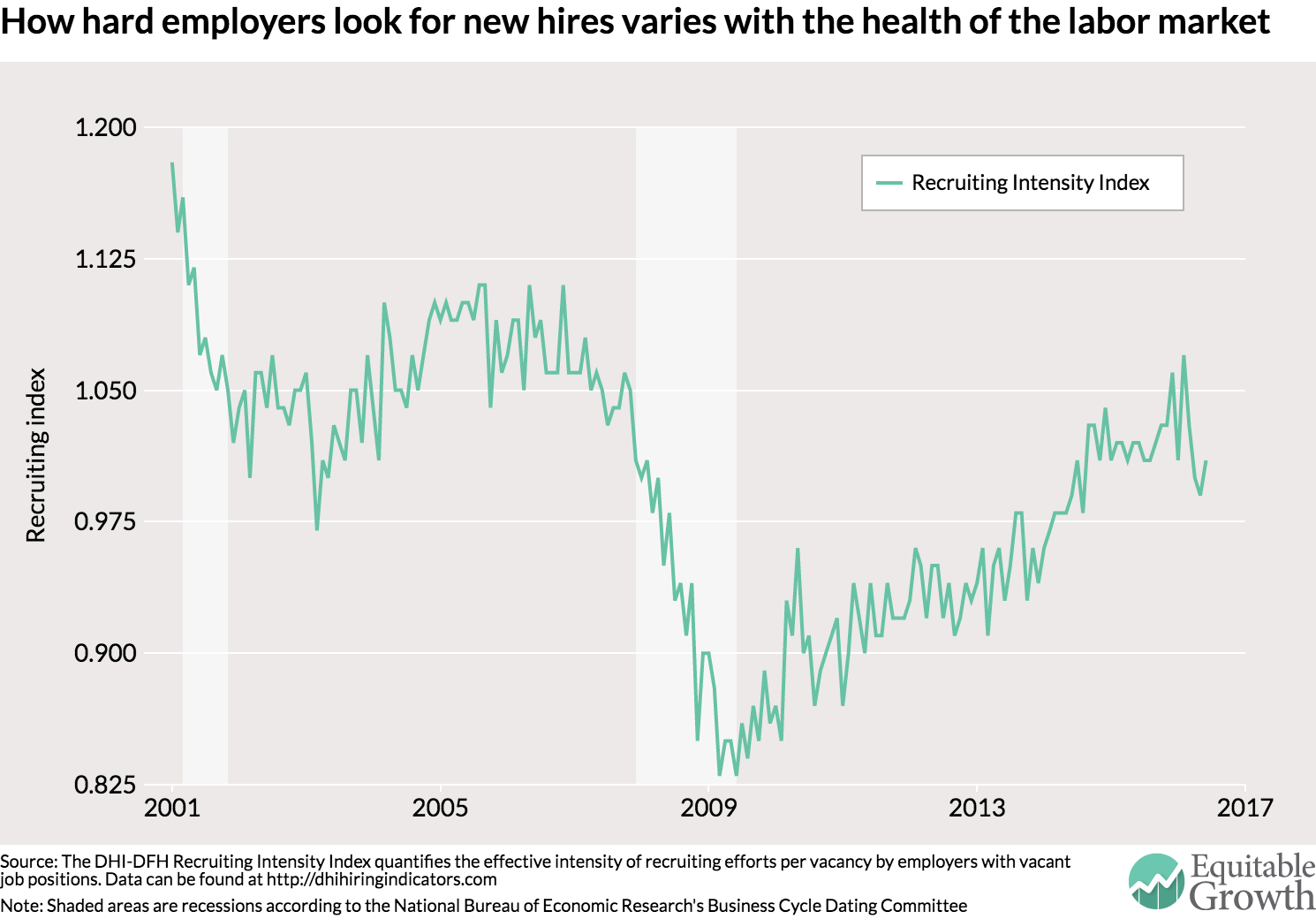Weekend reading: “the indispensable U.S. corporate income tax” edition
This is a weekly post we publish on Fridays with links to articles that touch on economic inequality and growth. The first section is a round-up of what Equitable Growth published this week and the second is the work we’re highlighting from elsewhere. We won’t be the first to share these articles, but we hope by taking a look back at the whole week, we can put them in context.
Equitable Growth round-up
The whole U.S. federal tax code could use a number of reforms, but the corporate income tax is particularly in need of a reboot. Reed College economist Kim Clausing lays out a defense of the tax and some suggestions for changes.
Job search is a two-way street: workers look for a job and employers try to find new employees. Yet the employer portion tends to get overlooked—and it shouldn’t because the intensity of employer job search impacts employment and wage growth.
Does the estate tax violate our sense of equity? A concern for equity might suggest that policymakers change the form of certain wealth taxes, but not their wholesale elimination.
Workers in the retail and service sectors are increasingly subject to erratic and unpredictable work schedules. New research looks at how these schedules may have an impact on the health of these workers.
We’ve all become more skeptical of mortgage debt after the bursting of the housing bubble. In light of calls to reduce the influence of debt in the housing market, how should we consider a new company offering equity investments in residential houses?
Links from around the web
Is something rotten with the state of macroeconomics? According to economist Paul Romer the answer is a resounding yes. In a new article, he claims that over the past three decades “macroeconomics has gone backwards.” [paulromer dot net]
A new report questions the interpretation and overall validity of the now famous “elephant chart” of global income growth. But the Financial Times’ Martin Sandbu shows that the criticism raises questions the original paper preempted and that the new analysis leads to similar conclusions as the original. [free lunch]
Derek Thompson notes a surprising trend in the U.S. labor market: the working poor are the workers with the most leisure time and the rich have the least. That’s the opposite of many, including famously John Maynard Keynes, would have expected. What’s behind these trends? [the atlantic]
Central bankers and many economists have been very interested in the natural rate of interest, or “equilibrium real rate of interest.” But what if this rate doesn’t exist at all? Eric Lonergan makes the case against r*. [philosophy of money]
Economists are studying inequality more and more these days and Alana Semuels noticed an interesting trend about some of the economists leading the way: they’re Europeans. [the atlantic]
Friday figure

Figure from “How intensely are U.S. employers looking for workers?” by Nick Bunker
